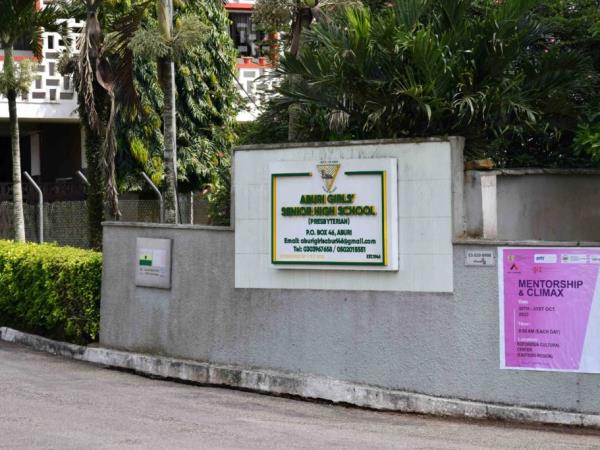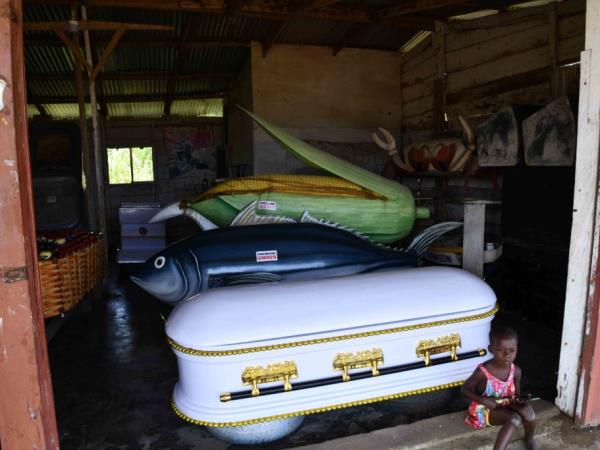Ghana cultural tours


Description of Ghana cultural tours
Departure information
This trip can be tailor made throughout the year to suit your requirements
Travel guides
Travelling West Africa is a balancing act – a mix of culture, food, nature and a past best told by the region’s own storytellers. Festivals are all-si...
Cultural tourism in Africa is still in its infancy. Not only are visitor numbers smaller than they should be, but what travellers see is only a small ...
Holiday information
Indigenous communities:
This trip benefits various indigenous communities in Ghana by promoting cultural preservation and encouraging guests to purchase food and souvenirs in craft villages, including dolls, statues, and kente cloth. It creates employment opportunities as guides and caterers and exclusively uses locally-owned accommodation. Tourists visit local markets and an eco village, and can take lessons in cooking and weaving fugu.
Reviews
1 Reviews of Ghana cultural tours
4 out of 5 stars
Reviewed on 16 Jan 2016 by Chris Pountain
1. What was the most memorable or exciting part of your holiday?
The most memorable part was probably walking around the busy streets of areas like Accra Old Town, Osu and the centres of Cape Coast and Elmina. There is always something to look at amongst the crowds and you feel safe and are not unduly bothered. Particularly enjoyable was a visit to a local high-life band’s concert in Cape Coast. And we were very interested in a couple of meetings we had with academics about Ghanaian culture and history.
2. What tips would you give other travellers booking this holiday?
We only went for a week, partly because we were cautious about the holiday, never having been to “proper Africa” before. Ghana generally feels a comfortable safe place to be. So take longer – for instance, it would have been good to visit Kumasi.
3. Did you feel that your holiday benefited local people, reduced environmental impacts or supported conservation?
Yes. Using a local company means your money goes into the local economy. We also enjoyed visiting the social enterprises Global Mamas and Trashy Bags, and could feel confident that our purchases were benefiting local people.
4. Finally, how would you rate your holiday overall?
Very good. We achieved our main aim of finding out a lot more about Ghana and its people. We would recommend the tour company who were helpful and flexible in designing a tour which suited us, and whose guide Vincent was always friendly and patient.
Responsible Travel
As the pioneers of responsible tourism, we've screened this (and every) holiday so that you can travel knowing we've worked to maximise the benefits of your holiday to local people and places, and minimise any negative impacts.
Planet
Before any trip we give the code of conduct to travellers to know how to conduct themselves in order not to destroy the local culture, flora and fauna species. 'Do not take any flora, take only photographs' and ‘Do not litter but leave only your footprint policy’. We help to keep the environment clean as our guides are asked to explain and encourage this policy during the trip. We explain to them that in certain communities some animals especially in Boabeng Fiema where monkeys are considered as gods and are treated with respect so they should be very careful not to cause any harm to them.People
We have built strong links with local communities, craftspeople and artists who are maintaining our culture and traditions. We offer visitors an opportunity to meet them, thereby valuing their activities and thus helping towards their survival. After the trip in the craft villages – Adamwomase, Ahwia and Ntonso, Daboya travellers are encouraged to leave some money in the communities by eating delicious and nutritious local foods and buy local souvenirs.Again, we employ local guides to explain the history and culture to travellers. For an indigenous culture that has stayed largely separated from the surrounding majority, tourism can present both advantages and problems. On the positive side are the unique cultural practices and arts that attract the curiosity of tourists and provide opportunities for tourism and economic development. On the negative side is the issue of how to control tourism so that those same cultural amenities are not destroyed and the people do not feel violated so we make sure that the locals are not left out by employing them as tour guides and caterers. We always use accommodation facilities which are locally owned.
Popular similar holidays
Cultural history holiday in Ghana
From US $750 - US $3500 14 days excluding flights
Authentic Ghana Eco, Culture, History and Wildlife Tours
Transatlantic slave trade tour, Ghana
From US $1880 - US $3025 8 days excluding flights
Historical and cultural tour of Ghana
Ghana, Togo & Benin tour, Ouidah voodoo festival
From £3599 13 days excluding flights
The magic of Benin's voodoo festival, plus Ghana and Togo


















